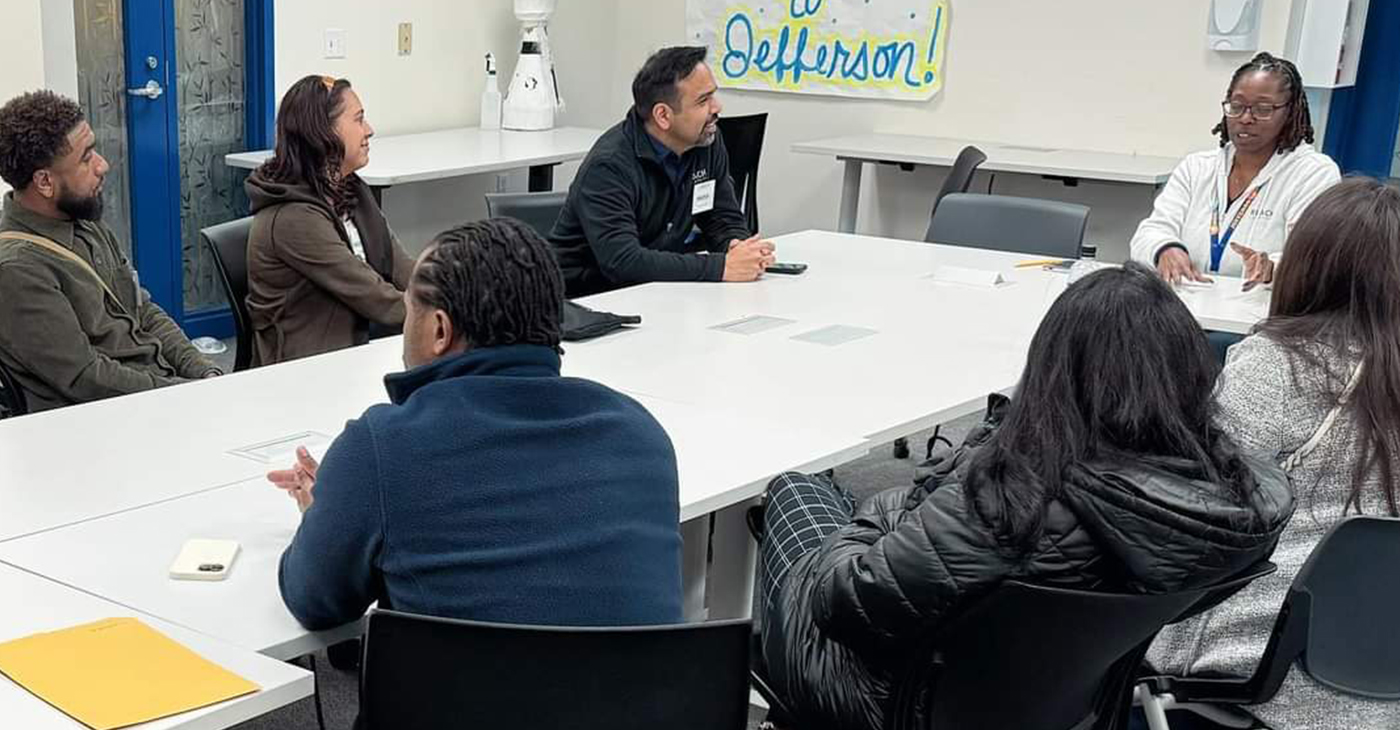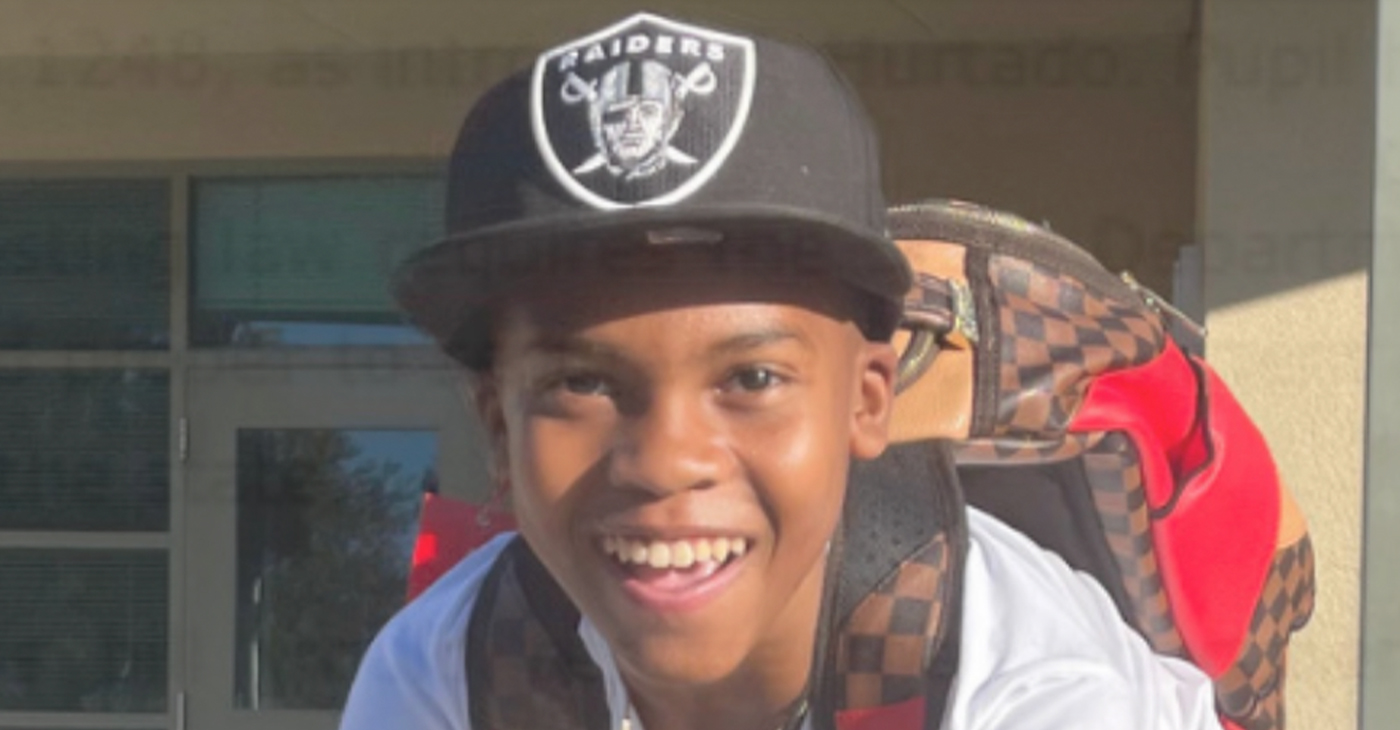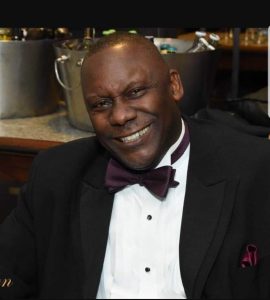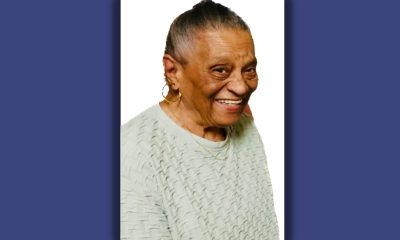Education
Math Skills and Black Culture Come Together at CBAC
LOS ANGELES SENTINEL — Like many parents, Pastor James Thomas of the Living Word Community Church, and his wife, Mona, aimed to place their children in a private school with the expectation that they would receive an exceptional education, and have the best chance possible of thriving in college. But once their children were enrolled in a private school, the Thomases were deeply disappointed to see how the Black students were treated.
By Imani Sumbi
Like many parents, Pastor James Thomas of the Living Word Community Church, and his wife, Mona, aimed to place their children in a private school with the expectation that they would receive an exceptional education, and have the best chance possible of thriving in college. But once their children were enrolled in a private school, the Thomases were deeply disappointed to see how the Black students were treated.
“We had no idea that in the minds of the folks in the Valley, and in this particular private school that we were involved in, that it was like the ‘60s almost,” Pastor Thomas says. “[There was] a lot of racism [and] a lot of stereotyping.”
Even their own children, who were all excellent students, were not immune to the underlying prejudice. Pastor Thomas got on the board of the school in an attempt to exact change, but found his voice was not being heard.
Eventually, the Thomases concluded that the culture of the private school system was not conducive to the success of Black children, and many Black children were simply tolerating the prejudice for fear that they would get in trouble if they spoke up.
If they wanted to give these children the attention and care they deserved, they would have to take it into their own hands. So, with the help of their church, the Thomases launched their own educational program, which would later become the Culturally Based Algebra Camp (CBAC).
“We started this because we felt like, even though Black folks are moving to the Valley hoping to get a better education, these people are treating us as if we don’t even deserve respect or dignity,” says Mr. Thomas.
When the Thomases first got the idea to start an after-school educational program, it was not actually a math camp at all. It started as a weekly Saturday morning tutoring session for students attending public and charter schools in the San Fernando Valley. The prevailing sentiment among those who attended was that they did not enjoy school, and they especially dreaded math classes.
Realizing that these children needed much more support and encouragement than could be provided in a weekly study group, the Thomases transformed these sessions into an Algebra-focused camp. Now, it runs five days a week, from 8 a.m. to 1 p.m., for six weeks each summer at CHAMPS Charter High School of the Arts in Van Nuys. The camp serves the first through the 12th grades, which are divided into five classrooms. Third graders are the only children who get their own classroom apart from any other grades, and for good reason.
“Usually, Black students, especially Black boys, are excelling in school until they get to grade three,” says Mr. Thomas. “At grade three, they begin to decline. And so, we decided to separate them out and work specifically with them so that wouldn’t happen.”
While the camp’s main objective is to prepare students to do well in Algebra 1 and more advanced math levels, it is anything but a typical summer program. As its name implies, the Culturally Based Algebra Camp prides itself on contextualizing lessons within the historical origins of mathematics and specifically its connection to Africa.
“Our motto is, you’ve got to be able to do math because you invented it,” says Pastor Thomas. “And so, what these students find out is not only did we invent math, but just about everything else. And so, most of what the world celebrates started with us. We show them that.”
In addition to being a pastor, Mr. Thomas is also a professor of Pan-African studies at Cal State LA. He says he repeats many of the same lectures he would give to his college students to the children at CBAC. Each morning, when the first students begin to arrive, he talks to them about a variety of topics including cultural appropriation, HBCUs, Black Greek letter organizations, post-traumatic slave syndrome, reparations, medical apartheid and slave religious customs.
“I don’t dumb it down for them,” he says. “Some of it is over their heads, and that’s fine.”
What is important, he says, is that these children are exposed to their culture and history from a young age so that they can feel proud of their heritage and assured of their abilities to excel academically — something many of the campers truly seem to take to heart.
“I’m learning about how Black people have invented many things and knowing that my culture is a pretty smart culture and they have done a lot of things for this world,” says Donovan, a 14-year-old student. “So, it’s nice to know that, and nice to see that I come from a culture with rich history.”
However, the cultural discussions at CBAC are not solely focused on the past. The camp is also a safe space for students to air their thoughts about the current political and racial climate.
“The year that Trayvon Martin was killed, we wanted to know how the kids were feeling about that,” says Mrs. Thomas. “So, there was a whole discussion about that, just so that the kids could have clear perspective and have an opportunity to voice whatever it was that they felt about that.”
The Thomases say the enthusiasm that CBAC students show in dedicating themselves to showing up each day and practicing their math skills is truly stunning. It goes entirely against the stereotype that Black children are uninterested or unskilled in academic performance.
Martha, 16, has been coming to CBAC since she was in fourth grade.
“Before I came to camp, math was not really my friend,” she says. “I didn’t really understand much of what was happening and sometimes my teachers were going too fast or they were not explaining it thoroughly. But then, when I started coming here, and I started learning more, I feel like math is now one of my strongest subjects.”
She is now preparing to take the SAT next year and says she wants to become a pediatric surgeon.
Kruse, a 7-year-old student, likewise had only positive things to say about how the camp has impacted his learning.
“I think it’s pretty good,” he says. “I haven’t learned multiplication or division yet, so I’m starting to get the hang of that and I’m thinking that I can take this stuff over to school and I’ll be probably smarter than other kids.”
Since the camp’s inception, countless parents have praised the program, attesting that their children have not only gained confidence in their math skills but have also developed a greater appreciation and pride for their identity as African Americans.
Shade Mokuolu has two children, a 9-year-old and a 10-year-old, who are returning to the camp for their third year. She appreciates that CBAC keeps their minds busy and engaged during the summer so they will be right on track when they go back to school.

BAC students create projects to show the connection between African history and mathematics. (Imani Sumbi / Los Angeles Sentinel)
“The moment they came, and they saw other kids like them, they started making friends, [and] they loved it,” Mokuolu says. “It’s also a very unique program because it helps them to connect to their roots [and] their heritage as African Americans. They do a lot of projects here that help them to connect with who they are, they study different parts of the world, [and] they study history.”
While CBAC holds its students to high academic standards, the Thomases espouse the philosophy that “parents are the most important component,” and they are held to equally high requirements in terms of their involvement in their children’s success at the camp and beyond. They must attend workshops and meetings throughout the summer to learn more about CBAC and stay updated on college admission requirements such as standardized testing and the FAFSA. They even take a pledge promising to help their children maintain a positive self-image, resolve issues in the household that may hinder academic achievement, limit unhealthy use of electronics and do everything in their power to help their children flourish.
If there is one thing the Thomases hope to accomplish through this program, it is that their students will never feel as though they have to accept racial intolerance in order to succeed academically – exactly what the Black students at the private school their own children once attended, seemed to feel.
“The one thing that I want them to take away is that when they fight, they win,” says Pastor Thomas. “I say that because I think we’re in a place now that we can’t just take for granted that people are going to do right by us. We have to make demands and we have to push for those demands. I hope that they will fight to go to college, that they will fight to get access to the classes that they need and that will help them to grow.”
To learn more about CBAC, contact Pastor James and Mona Thomas at info4cbac@gmail.com
This article originally appeared in The Los Angeles Sentinel.
Activism
Oakland Schools Honor Fred Korematsu Day of Civil Liberties
Every Jan. 30, OUSD commemorates the legacy of Fred Korematsu, an Oakland native, a Castlemont High School graduate, and a national symbol of resistance, resilience, and justice. His defiant stand against racial injustice and his unwavering commitment to civil rights continue to inspire the local community and the nation. Tuesday was “Fred Korematsu Day of Civil Liberties and the Constitution” in the state of California and a growing number of states across the country.

By Post Staff
Every Jan. 30, OUSD commemorates the legacy of Fred Korematsu, an Oakland native, a Castlemont High School graduate, and a national symbol of resistance, resilience, and justice.
His defiant stand against racial injustice and his unwavering commitment to civil rights continue to inspire the local community and the nation. Tuesday was “Fred Korematsu Day of Civil Liberties and the Constitution” in the state of California and a growing number of states across the country.
One OUSD school is named in his honor: Fred T. Korematsu Discovery Academy (KDA) elementary in East Oakland.
Several years ago, founding KDA Principal Charles Wilson, in a video interview with anti-hate organization “Not In Our Town,” said, “We chose the name Fred Korematsu because we really felt like the attributes that he showed in his work are things that the children need to learn … that common people can stand up and make differences in a large number of people’s lives.”
Fred Korematsu was born in Oakland on Jan. 30, 1919. His parents ran a floral nursery business, and his upbringing in Oakland shaped his worldview. His belief in the importance of standing up for your rights and the rights of others, regardless of race or background, was the foundation for his activism against racial prejudice and for the rights of Japanese Americans during World War II.
At the start of the war, Korematsu was turned away from enlisting in the National Guard and the Coast Guard because of his race. He trained as a welder, working at the docks in Oakland, but was fired after the bombing of Pearl Harbor in 1941. Fear and prejudice led to federal Executive Order 9066, which forced more than 120,000 Japanese Americans out of their homes and neighborhoods and into remote internment camps.
The 23-year-old Korematsu resisted the order. He underwent cosmetic surgery and assumed a false identity, choosing freedom over unjust imprisonment. His later arrest and conviction sparked a legal battle that would challenge the foundation of civil liberties in America.
Korematsu’s fight culminated in the Supreme Court’s initial ruling against him in 1944. He spent years in a Utah internment camp with his family, followed by time living in Salt Lake City where he was dogged by racism.
In 1976, President Gerald Ford overturned Executive Order 9066. Seven years later, the 9th Circuit Court of Appeals in San Francisco vacated Korematsu’s conviction. He said in court, “I would like to see the government admit that they were wrong and do something about it so this will never happen again to any American citizen of any race, creed, or color.”
Korematsu’s dedication and determination established him as a national icon of civil rights and social justice. He advocated for justice with Rosa Parks. In 1998, President Bill Clinton gave him the Presidential Medal of Freedom saying, “In the long history of our country’s constant search for justice, some names of ordinary citizens stand for millions of souls … To that distinguished list, today we add the name of Fred Korematsu.”
After Sept. 11, 2001, Korematsu spoke out against hatred and discrimination, saying what happened to Japanese Americans should not happen to people of Middle Eastern descent.
Korematsu’s roots in Oakland and his education in OUSD are a source of great pride for the city, according to the school district. His most famous quote, which is on the Korematsu elementary school mural, is as relevant now as ever, “If you have the feeling that something is wrong, don’t be afraid to speak up.”
Community
Teacher Mentoring Program Receives James Irvine Leadership Award
Leaders at Oakland-based Reach University, Dr. Elizabeth Baham and Héctor Camacho Jr, have been honored with the James Irvine Leadership Award for their work on addressing California’s teacher shortage through job-embedded curriculum and credential programs. With the award, each organization receives a grant of $350,000 and additional resources.

By Magaly Muñoz
Leaders at Oakland-based Reach University, Dr. Elizabeth Baham and Héctor Camacho Jr, have been honored with the James Irvine Leadership Award for their work on addressing California’s teacher shortage through job-embedded curriculum and credential programs. With the award, each organization receives a grant of $350,000 and additional resources.
Dr. Baham and Mr. Camacho, who have been at Reach for nine years and two years respectively, have been instrumental in attracting and recruiting future educators who otherwise would not have a clear and affordable path into teaching or leadership positions.
Established in 2006, Reach University has served as the nation’s first and only accredited nonprofit university, dedicated to advancing undergraduate and graduate degrees and credentials.
“To be recognized for this work so publicly, has given me more strength to keep [fighting] because it’s a lot of work. I’m super honored and appreciative of [the James Irvine Foundation] for giving me this new burst of energy because it’s a tough field,” Camacho said.
Baham echoed Camacho’s sentiments and is grateful that the work they are doing is being recognized by a larger audience.
“It’s an acknowledgement of the work that I’ve put in and it’s an acknowledgement that teachers matter, that education matters. I think that at the end of the day, people see both Hector and I representing Reach University and they walk away with a sense of teaching matters,” Baham said.
The university primarily partners with K-12 school districts to provide potential teacher candidates who specialize in subjects such as liberal arts, math, science of reading, and computer science.
Camacho, Dean of Admissions and SVP of Workforce Development, praised the university’s methodology in allowing candidates already employed in a school either part or full time, as a teacher-aides or paraprofessionals, to earn college credit while mastering the art of teaching.
Camacho highlighted the challenges that many face when seeking higher education, such as taking a break from school to work and afford their degree or going directly into college and amassing large amounts of debt to solely focus on their studies.
“Let’s honor and recognize the work that they’re doing in the schools right now. Give them some college credit and then give them the other coursework they need to finish it because we know you shouldn’t have to choose anymore,” Camacho said.
Students at Reach University are paid to earn a degree, and undergraduates take on zero student debt. After grants and institutional scholarships, the out-of-pocket contribution for all full-time undergraduate candidates is $900 per year, or $75 per month, with no student debt, according to Reach officials.
Half of the program candidates are made up of people of color, matching the demographics of the schools they are working in. The large majority are also first-generation college students and some from low-income backgrounds.
Baham, Provost & Chief Academic Officer, stated the importance of having educators of color in classrooms because it not only allows for students of color to see themselves in authority positions, but also integrates what the world looks like for those who are not surrounded by diversity in their everyday lives.
She added that diversity at all levels of academia results in success and encouragement for everyone to strive for more.
“It’s important for [students] to see us occupying spaces where they will want to see themselves,” Baham said.
Reach students are taught in group setting classrooms twice a week and through one-on-one mentoring to better assist with individual needs. This approach allows students to network with other classmates to problem-solve similar obstacles and receive personalized coaching to refine their teaching skills.
With job-embedded curriculum being the set form of learning for Reach, many of the students have a clearer transition from degree to career pipeline. 84% of California alumni are still in the classroom five years after completing the graduate program and nearly 91% are still working in a school.
Tysha Hayes, a Reach student, works as a bus driver for Jefferson Union High School District and part-time in the classroom as a part of her degree program. She entered the university in fall 2023 and is hoping to graduate by 2027.
Hayes shared that the non-traditional learning aspect of Reach is what drew her to enroll, as she herself has had an unconventional journey from being a bus driver for 27 years to pursuing a career in education.
The job allows Hayes to be involved in her students’ lives in a more personal way. She explained that her face is the first and last one they see on their way back and forth to school, often prompting them to share their classroom frustrations and struggles with her.
“The bus has been my classroom with the students, so I get the best of both worlds. I get to see them in different elements throughout the whole day,” Hayes said.
Post-graduation, Hayes intends to work in health and wellness so that she can help guide and assist students who are feeling overwhelmed or unmotivated in their education to work through their struggles and strive for more.
Hayes says although she got a late start in life, the prospect of building interpersonal relationships with her students in and outside the classroom excites her to keep working towards her degree.
California Black Media
Yahushua’s Law: Senate Advances Bill to Protect Students from Extreme Weather
In a significant move towards student safety, the California Senate Education Committee passed Senate Bill (SB) 1248, also known as Yahushua’s Law, on April 3. The bill is named in memory of Yahushua Robinson, a 12-year-old student from Lake Elsinore, who tragically died due to a heat-related illness during a physical education class in 2023. It is a pioneering effort to prevent similar incidents in the future.

By California Black Media
In a significant move towards student safety, the California Senate Education Committee passed Senate Bill (SB) 1248, also known as Yahushua’s Law, on April 3.
The bill is named in memory of Yahushua Robinson, a 12-year-old student from Lake Elsinore, who tragically died due to a heat-related illness during a physical education class in 2023. It is a pioneering effort to prevent similar incidents in the future.
Authored by Senator Melissa Hurtado (D-Bakersfield) and co-authored by Assemblymember Akilah Weber, M.D. (D-La Mesa), SB 1248 directs the California Department of Education to develop comprehensive guidelines for schools regarding student activity during all extreme weather conditions.
“No student should ever lose their life on campus to extreme weather when we can take steps to protect them by preparing statewide plans to minimize exposure to the most harmful elements of exposure,” Hurtado said after introducing SB 1248.
The bill stipulates that schools must implement safety measures which include monitoring weather forecasts, postponing or relocating outdoor activities during hazardous conditions, and ensuring students have proper hydration and access to shade. It also requires schools to establish clear communication plans to keep parents, teachers, and students informed about potential weather hazards.
Supporters of the bill include the Robinson family, advocate Christina Laster, Bold Enterprises LLC, California Black Women’s Collective Empowerment Institute, Familias Empoderadas del Valle Central National Action Network, The Black Student Advocate, and the Ventura County Alumnae Chapter of Delta Sigma Theta Sorority.
Thanking Hurtado for introducing this crucial legislation, Weber said, “The story of Yahushua Robinson last year was heartbreaking. We have protections for farm workers and other industries in the case of extreme weather, now climate change is forcing us to also extend similar protections to students at school.”
-

 Activism4 weeks ago
Activism4 weeks agoOakland Post: Week of March 20 – 26, 2024
-

 #NNPA BlackPress3 weeks ago
#NNPA BlackPress3 weeks agoCOMMENTARY: D.C. Crime Bill Fails to Address Root Causes of Violence and Incarceration
-

 #NNPA BlackPress3 weeks ago
#NNPA BlackPress3 weeks agoMayor, City Council President React to May 31 Closing of Birmingham-Southern College
-

 #NNPA BlackPress3 weeks ago
#NNPA BlackPress3 weeks agoFrom Raids to Revelations: The Dark Turn in Sean ‘Diddy’ Combs’ Saga
-

 #NNPA BlackPress3 weeks ago
#NNPA BlackPress3 weeks agoCOMMENTARY: Lady Day and The Lights!
-

 #NNPA BlackPress3 weeks ago
#NNPA BlackPress3 weeks agoBaltimore Key Bridge Catastrophe: A City’s Heartbreak and a Nation’s Alarm
-

 #NNPA BlackPress3 weeks ago
#NNPA BlackPress3 weeks agoBaltimore’s Key Bridge Struck by Ship, Collapses into Water
-

 Activism3 weeks ago
Activism3 weeks agoOakland Post: Week of March 27 – April 2, 2024















































